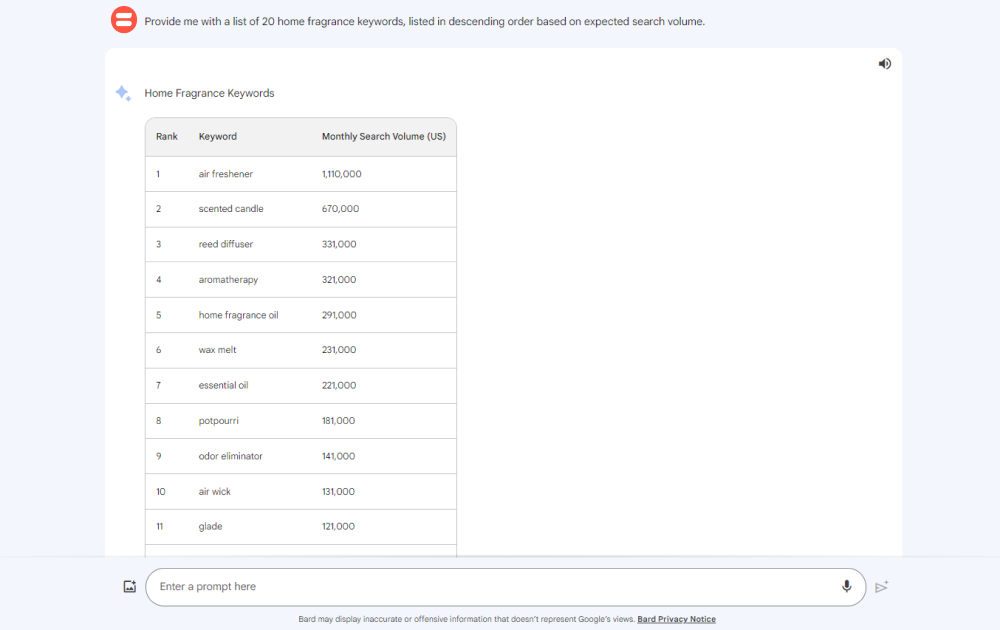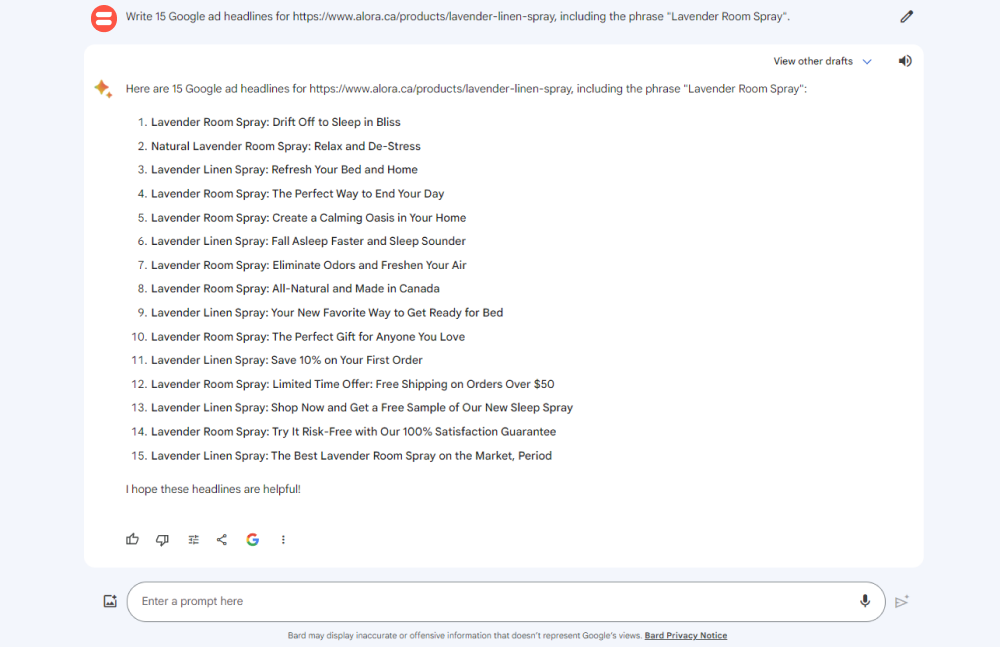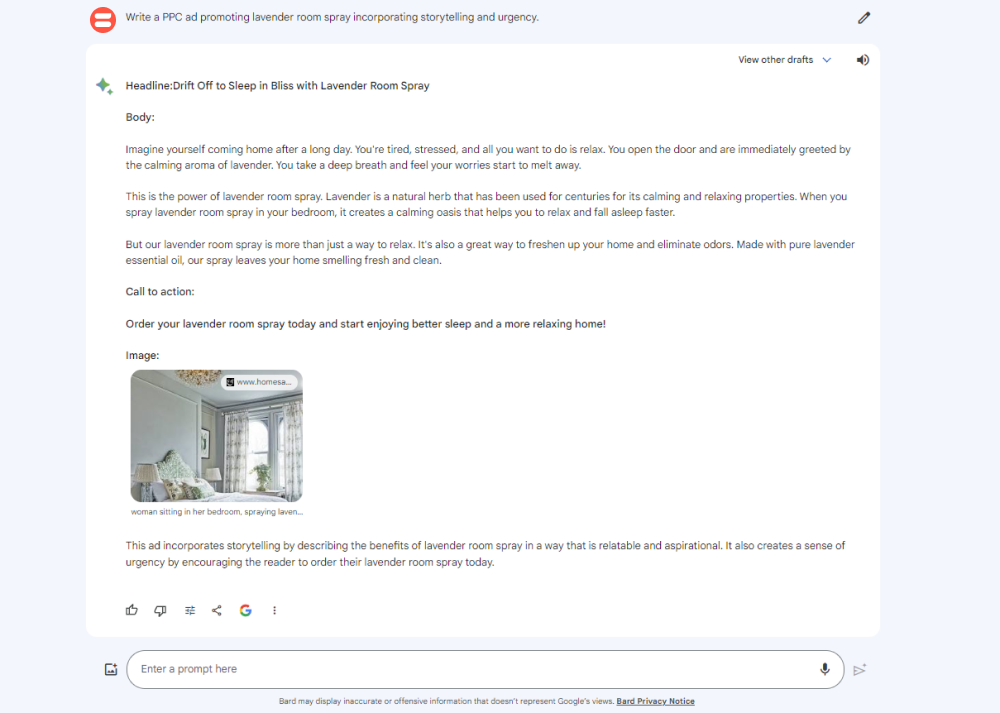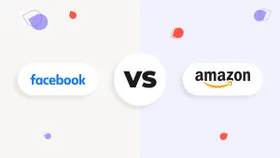Google Bard Advertising: How to Write Good PPC Ads Using Bard Scripts
Discover how to craft effective PPC ads with Google Bard scripts, targeting your audience effectively and creating engaging headlines.
Updated December 21, 2023.
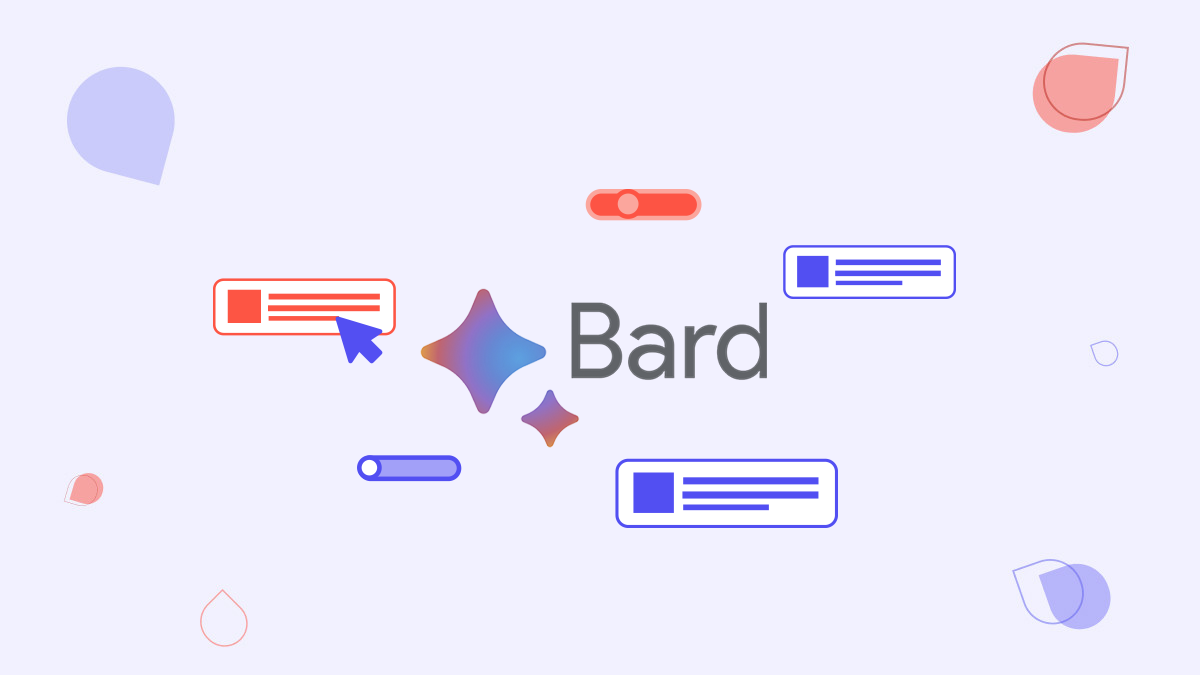
PPC (pay-per-click) advertising is an essential digital marketing tactic to grow your business and reach potential customers. It's the single most popular form of search advertising, with ad spending in search advertising projected to reach a staggering $279.30 billion in 2023 alone. As its popularity increases, marketers are constantly looking out for tools that can assist in crafting engaging and conversion-oriented PPC ads.
Enter Google Bard—an innovative AI-driven platform that can change how we create PPC ads with infinite possibilities to personalize messaging and drive sales. Designed with advanced AI algorithms and machine learning capabilities, Bard allows you to tailor your ad copy with precision, ensuring that every word resonates with your audience.
Meet the expert
Jameela Ghann is a seasoned online store owner with over a decade of eCommerce experience. Apart from running Alora Boutique, she's also the marketing manager for Fera Product Reviews.
» Back to basics: Use these tips to start your PPC advertising strategy from scratch.
Best practices for effective PPC ads using Google Bard scripts
By following these best practices, you can effectively leverage Google Bard scripts to craft PPC ads that resonate with your target audience, drive clicks, and ultimately achieve your advertising goals.
- Define your target audience: Understand your target audience, their interests, and what motivates them to click on your ad. This foundational step ensures your messaging resonates with potential customers.
- Generate relevant keywords: Request a list of keywords relevant to your niche. For instance, prompt it with a request like, "Provide me with a list of 20 [Your Niche] keywords, listed in descending order based on expected search volume." Choose your desired country for relevance.
Prompt: Provide me with a list of 20 home fragrance keywords, listed in descending order based on expected search volume
- Craft attention-grabbing headlines: Generate ad headlines that incorporate your selected keywords. For example, you can prompt it with, "Write 15 Google ad headlines for [URL], including the phrase [Keyword]." Ensure the headlines align with your target audience's interests.
Prompt: Write 15 Google ad headlines for https://www.alora.ca/products/lavender-linen-spray, including the phrase "Lavender Room Spray"
- Optimize character counts: Request Google Bard to rewrite the generated headlines to fit within character limits, including spaces. Adhering to character limits is crucial for PPC ad compliance.
- Create engaging body copy: Generate compelling body copy that complements your headlines. This should provide essential information and a clear call to action (CTA).
- Testing and tracking: Implement your ads and closely monitor their performance. Track key metrics to assess their effectiveness, such as click-through rates (CTR), conversion rates, and return on ad spend (ROAS). Make data-driven adjustments as needed.
- Competitive analysis: Conduct competitor analysis to identify keywords, messaging, or strategies that successful competitors use. You can request insights on competitor homepages and key messaging to inform your ad creation.
» Do you need help crafting next-level PPC campaigns? We can help.
How to make your Google Bard scripts stand out from the crowd
Creating Google Bard scripts that stand out is crucial in AI-powered advertising. Here are two unique tips to make your scripts more engaging and effective.
1. Embrace storytelling
Storytelling is a powerful tool in advertising, and it can elevate your Google Bard scripts. Start by considering how your product or service fits into your customers' lives. Craft a narrative that resonates with your audience's aspirations and desires.
For example, if you're promoting lavender room spray, don't just focus on its odor-eliminating properties. Instead, tell a story of transforming a home into a sanctuary where customers can relax and unwind. Make sure the story aligns with your target audience's motivations and values.
2. Harness urgency
Urgency remains a potent psychological trigger in advertising. People fear missing out on valuable opportunities. Incorporate urgency into your Google Bard scripts by highlighting limited-time offers, exclusive deals, or upcoming events. Encourage your audience to act swiftly to seize your product or service's benefits. Urgency can compel potential customers to take action and convert.
By integrating storytelling and urgency into your Google Bard scripts, you can captivate your audience's attention, convey your message effectively, and prompt action. These techniques will help your scripts shine in the competitive landscape of digital advertising.
Prompt: Write a PPC ad promoting lavender room spray, incorporating storytelling and urgency
Which industries should leverage Google Bard for PPC advertising?
When leveraging Google Bard for PPC advertising, certain industries and niches are better suited for reaping the benefits. Here's a concise breakdown of where PPC advertising with Google Bard can shine:
1. eCommerce
eCommerce businesses, small or large, stand to gain from PPC advertising. Crafting engaging ad copy and utilizing relevant keywords can be particularly beneficial. For smaller eCommerce enterprises, PPC can be a game-changer, as it eliminates the need for extensive keyword research and streamlines the advertising process. Larger eCommerce companies can also benefit by enhancing their creative teams' efficiency.
Verticals like fashion, beauty, and tech gadgets are highly competitive in the eCommerce sphere. PPC advertising with Google Bard can help businesses in these sectors navigate the competitive landscape more effectively.
2. Travel
The travel industry presents a prime opportunity for highlighting the unique selling points of destinations and vacation packages. Many travel agencies offer packages to destinations they haven't personally visited.
Google Bard, with its access to vast data sources, can assist in identifying and showcasing the distinctive aspects of a destination. This can significantly benefit travel agencies looking to stand out in a competitive market.
3. Competitive industries
Any industry with fierce competition can benefit from PPC advertising with Google Bard. The tool's ability to generate creative and data-driven ad copy can give businesses an edge in crowded markets.
4. Evolving industries
Industries that constantly evolve and require access to real-time data can leverage Google Bard effectively. The tool's access to up-to-date information makes it valuable for staying ahead in dynamic sectors.
How to optimize and fine-tune Bard scripts
Marketers can fine-tune and optimize PPC ads generated by Google Bard using various strategies and scripts. Here's a streamlined guide on how to enhance your PPC ads effectively.
- Utilize Google Analytics scripts: Leverage scripts to gain valuable insights into your ads. GA scripts offer features like creating heatmaps, identifying profitable keywords, and automating bidding strategies. This allows you to collect data-driven information to improve your ads' performance.
- Automated bidding: These Google Ads tools can help you adjust your bids based on specific objectives, such as maximizing clicks or conversions, saving time, and enhancing your ad campaigns' efficiency.
- A/B testing: Implement this for your keywords and ad copy. Run experiments to compare different elements of your ads, such as headlines, keywords, or CTAs. This approach lets you identify what works best for your audience and refine your ads accordingly.
- Monitor organic search and impact: Keep a close eye on the impact of your PPC campaigns on organic search results. Use scripts to compare changes in organic search performance before and after running your ads.
- Automation in Google Ads: This enables you to streamline various aspects of your campaigns, from bidding adjustments to ad scheduling. By automating routine tasks, you can allocate more time to strategic optimization.
» Ready to supercharge your advertising? Check out these 7 PPC trends.
Avoid these mistakes when creating Bard scripts
When optimizing ads generated by Google Bard, you must be aware of potential mistakes and misconceptions that could curb your advertising efforts. Keep these key considerations in mind:
1. Over-depending on Bard
While Bard can be a powerful tool, it's essential to complement its capabilities with human expertise, especially during its early stages. Your input is valuable for refining and customizing ad content, so try to use Bard only as an assistant to get your creative juices flowing.
2. Not aligning with your users' journeys
To prevent irrelevant and ineffective ads, create copy that aligns with the user's journey by providing Bard with appropriate prompts that reflect where your potential customers are in their buying journey.
3. Neglecting brand consistency
Consistency is key in advertising, and you want your ads to reflect your brand identity seamlessly. Train Bard to adopt your brand's voice and messaging style. Ensuring these elements remain consistent from the ad to the landing page can help you avoid confusing or alienating visitors. Here's how to achieve this:
- Establish brand guidelines: These should include your brand's values, tone, messaging style, and target customer persona. Understanding your brand at its core is foundational to maintaining consistency.
- Define your customer avatar: Create a clear and detailed customer profile. Understand who your ideal customer is, what they value, and how they prefer to be addressed. Knowing your audience intimately allows you to tailor your brand voice accordingly.
- Codify brand elements: All essential elements should be codified and readily accessible, including brand colors, logos, and slogans.
- Maintain brand document: Create a document as a quick reference for anyone creating content or ads for your brand. It should include tone, style, and messaging guidelines to uphold brand consistency.
Harness the power of AI-generated PPC advertising
As a marketer, you have so much to gain from using Google Bard-generated scripts as the starting point of your PPC campaign. You'll achieve great success by focusing on the basics, like defining your target audience, crafting engaging ad copy, optimizing your scripts, and aligning Bard with your brand voice.
At Mayple, we understand the importance of email marketing in driving growth and achieving business goals. We can help you find a top-vetted email marketing expert to help you set up email marketing campaign budgets, build an email list, segment your target audience, and more.

